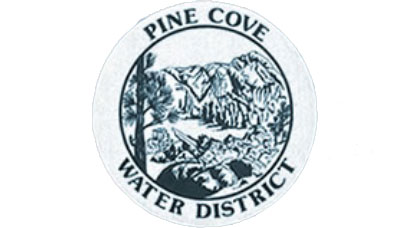No water shortage, according to IWD GM
Board wants to consider Stage 1 Emergency
Addressing its water quality issue was not the only issue on the agenda for the Idyllwild Water District last week. (See the accompanying story on A1 about more solutions to water quality.)
Water production for July was 10.2-million gallons, which was 660,000 gallons less than July 2017. For the first seven months of 2018, IWD production totals 52.9-million gallons, which is 0.5 percent or about 30,000 gallons more than the same period in 2017. However, the July production does include water used for or lost during the Cranston Fire, General Manager Jack Hoagland qualified.
During the discussion of the water supply status, he stated, “I am not able to make a recommendation for a water emergency.” Hoagland had reported that the July demand in gallons per minute was 55 percent of the current total production capability.
The horizontal wells at Foster Lake are online and several more may be added. In the near future, Hoagland expects to add the Oakwood well to production, too.
However, the status of the Oakwood well raised some questions and concerns. While reviewing the district’s payments in July, Director Steven Kunkle asked about the $7,000 for an appraisal for easements. Hoagland said it was for extending the pipeline from the Oakwood well to Jameson Street. He had included this project in his December capital-project proposal.
He said the estimated cost of $20,000 for two easements easily exceeded his expected costs and would likely stop the project. The district received its approval to operate the Oakwood well a year ago, but it still is not part of the production system.
Current water-shortage actions are defined in Ordinance 64. However, portions of that have been obviated with the recent approval of a new rate structure.
“If the board decides there is a water emergency, we could go to Stage 1,” he said. Stage 1 requests voluntary compliance with water conservation. Stages 2 and 3 are inconsistent with the new rates.
The only issue, which a Stage 1 status might raise, is the issuance of “will-serve” letters for new construction. Hoagland noted that about 25 meters have been installed out of a total of 58 requests or letters.
After one year, the letter needs to be renewed. During a Stage 1, only 10 letters may be issued. Hoagland’s concern is that the currently unfulfilled “will-serve” letters will begin to expire and the property owners may request renewals, which could exceed the limit of 10.
Kunkle expressed his objection to limiting “will-serve” letters. Director Peter Szabadi felt IWD should be in Stage 1. President Dr. Charles “Chip” Schelly restated that Stage 1 is the “only part of Ordinance 64 that we can implement.”
Hoagland encouraged the board to set a public hearing for September to consider going to Stage 1 and also to use its discretion to issue more “will-serve” letters than 10.
The board voted 3-2, with Schelly casting the deciding vote, to hold a public hearing at the next meeting. Directors David Hunt and Kunkle voted, “No.”
The board next addressed the proposed water contingency policy and new drought rates. The subcommittee composed of Hunt and Szabadi developed the new plan to replace Ordinance 64.
On this issue, the board unanimously agreed to schedule a public hearing on the new water-contingency plan at the next meeting.
One lesson from the Cranston Fire was that the district learned it needs a larger, stand-by generator for its Foster Lake shop. Currently, there are generators for the office, the waste treatment plant, the Foster Lake well pumps and city well pumps to help when electrical power goes out.
Finally, Schelly established a committee composed of directors Hunt and Kunkle to develop a process for recruiting and selecting a long-term general manager.
Hunt stated, “Since the general manager, Jack, has done a fabulous job. He responds to emails on Sunday and I like his expertise. I do see the community wants somebody full-time and living here.”
Kunkle expressed his concern that Hoagland was part-time and making about the same salary as the two other local general managers, who are full-time.
“The committee is not just to replace Jack,” stressed Szabadi, who also supported him, but noted that Hoagland may chose to retire within 18 months so the district should initiate a process for his replacement.



